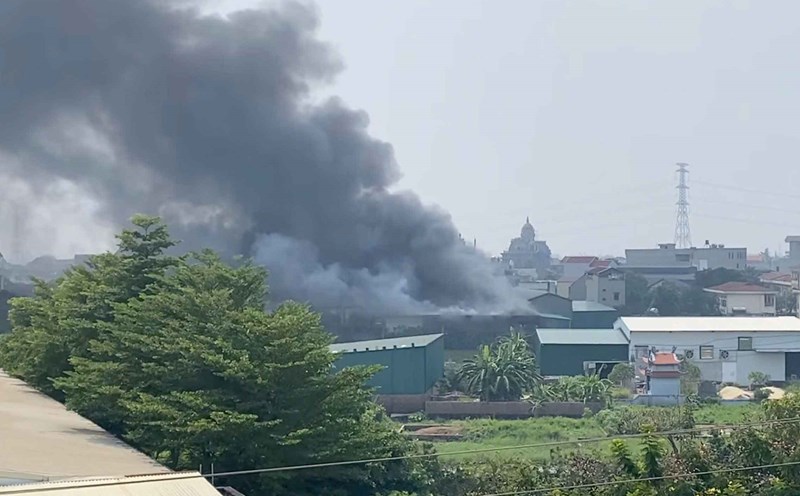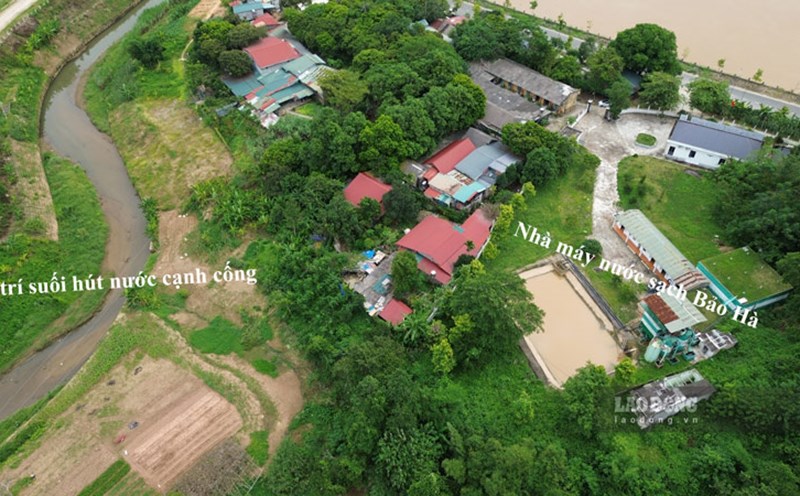Hanoi air is polluted
On the morning of October 9, Ms. Nguyen Thi Thu Thuy (Tay Mo ward, Hanoi) left home to go to work at 6:30 am, but immediately had to return home to get her mask because she saw the foggy air outside.
"It's surprising because after days of storms and rain, the air is so hazy. High-rise buildings are submerged in a " fog" while many streets are still flooded. When I arrived at the office, I went into the air quality measurement channels and learned that Hanoi's air was polluted" - Ms. Thuy shared.
After the rainy and stormy days, on October 9, the weather in the capital was sunny and dry, along with high traffic density and many construction works, causing air quality to decline. According to the Northern Environmental Monitoring Center, at 8:00 a.m. on October 9, the measuring station at Nhan Chinh - Khuat Duy Tien Park recorded the air quality index (AQI) at 110 - a poor level - not good for sensitive people with health problems, normal people with little impact.
The measuring station at 556 Nguyen Van Cu recorded the AQI as 98 - the average - the acceptable level. However, for sensitive people (the elderly, children, people with cardiovascular diseases...) they may suffer certain health impacts.
Experts point out that the largest source of emissions comes from vehicles, especially motorbikes using gasoline.
Dr. Hoang Duong Tung - Chairman of the Vietnam Clean Air Network - said: "During the circulation process, because emissions from internal combustion engines are not completely consumed, a lot of them are released into the environment, which contains a lot of toxic gas. We have conducted many studies on how much SCO2, CO,... in the emissions from each vehicle, especially diesel vehicles, although emissions from vehicles using fossil fuels do not directly create dust but create precursors such as fine dust particles (PM2.5, PM10).
Currently, not only Hanoi but many cities in the world clearly see the need to limit vehicles running on fossil fuels, minimizing air pollution in the inner city area".
Increased risk of respiratory diseases
The Department of Health Environment Management - Ministry of Health recommends that people proactively prevent and combat the effects of air pollution on their health, especially those who are sensitive to air pollutants such as children, pregnant women, people with respiratory and cardiovascular diseases, and the elderly with basic knowledge in implementing preventive measures and protecting their health.
Regularly monitor the air quality situation on the website of the Ministry of Natural Resources and Environment, the Department of Natural Resources and Environment of provinces and cities to take appropriate preventive measures and health protection.
When leaving home, often wear a quality mask and wear a proper mask. Regularly clean rooms and houses, ventilate the living environment. masks and eye protection glasses should be used when cleaning and cleaning if there is a lot of dust or air is polluted from poor to harmful levels.
Limit the use or replace the use of beehive coal stoves, firewood, straw burning with electric stoves, automatic stoves or gas stoves. Planting trees helps prevent dust and clean the air.
For smokers, tobacco products should be completely eliminated or smoking should be limited; smoking should not be done indoors.











